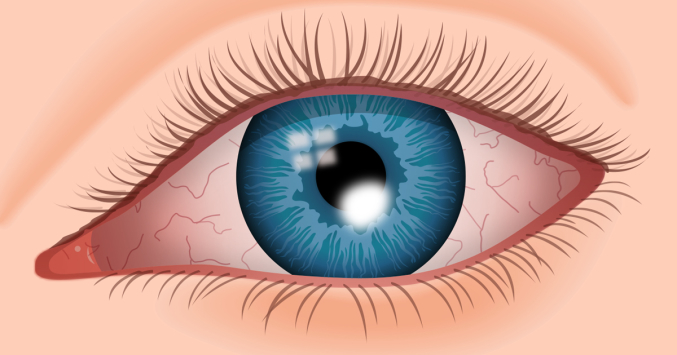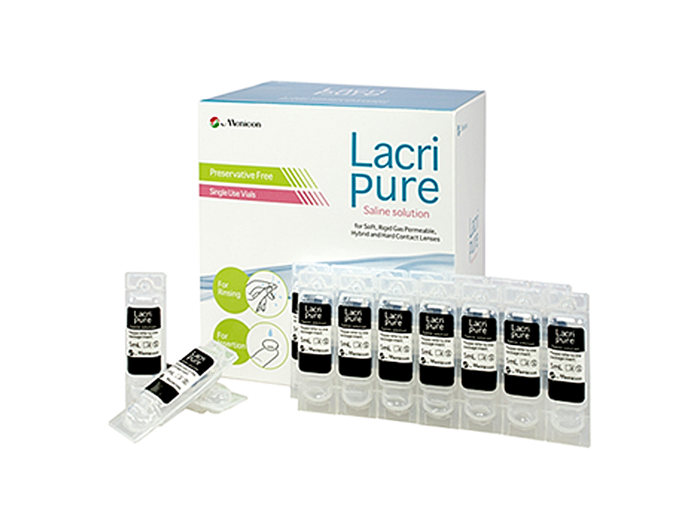The Best Contact Lens Cleaner for Dry Eye Sufferers
It’s summertime! We are all glad to be out in the sunshine and enjoying ourselves outdoors. Many patients tell me they would like to wear their contact lenses more in the summer so they can wear their sunglasses. Also, since most climates are a little less dry in the summer, dry eye sufferers find they can tolerate their contact lenses better this time of year.
With wearing your contact lenses more of the time, there are a few things to keep in mind. We will go over: the golden rule, the best cleaner to use for your contact lenses, and how to clean your lenses properly.
The Golden Rule
Since you are wearing your contact lenses more often in the summer it is important to remember the Golden Rule about contact lenses. If you have read my book, Alleviate Dry Eye, you know there is one statute that must be followed when wearing contact lenses. I call it the Golden Rule: remove your contact lenses every night.
I imagine that if you are reading this blog, you are a dry eye sufferer. For you, it is even more important that you remove your contact lenses every single night. I would even go so far as to say that you should not nap in your contact lenses if you have dry eyes.
The reason I am so strict about dry eye sufferers never sleeping in their contact lenses is that the front surface of the eye, the cornea, in a dry eye patient may already be damaged. The dryness of the dry eye actually causes a breakdown of the cornea. The primary defense mechanism of your cornea now has holes in its armor. Thus, the bacteria will have an easier route to cause infection than in a patient who does not have dry eyes.
Eye Infections
As you know, sleeping in contact lenses increases your chances of getting an eye infection. Bacteria can become trapped under your contact lens. And, when you are sleeping, you are not blinking which would disrupt the bacteria. Overnight the bacteria can start to multiply under the lens and become terrible, hard to treat infections.
Eye infections, especially corneal ulcers, can be sight threatening. A corneal ulcer is when bacteria begin to eat a hole in the front surface of your eyes. If left untreated, or improperly treated, these holes can leave large scars and can even perforate the cornea, which will require emergency surgery to repair.

(Corneal ulcer from www.allaboutvision.com)
If you feel that you have an eye infection, you must see your eye doctor immediately. Symptoms of an infection include redness, pain, swelling, tearing, mucus, and light sensitivity. You may have some of the symptoms or all of the symptoms. The symptoms may be of varying degrees. The bottom line is if you think you have an eye infection, do not wear your contact lenses and get to an eye doctor on the same day.
The Best Cleaner
The next most important thing about your contact lenses is that you must clean them thoroughly every night. You’ve gotten them out of your eyes for the night. Now you need to get them squeaky clean for tomorrow. The best contact lens cleaner for dry eyes is a hydrogen peroxide-based solution. My favorite brand is Clear Care Plus with Hydragylde.

Clear Care Plus Hydraglyde
Hydrogen peroxide-based solutions kill more bacteria than any other disinfecting solution currently on the market. And, with a hydrogen peroxide-based solution, you do not have to rub the lenses to physically remove protein, dirt, and dust from the lens surface. The chemical reaction of the hydrogen peroxide changing into water releases bubbles which cling to the lenses and remove these particles from the lenses for you.
If you can remember back to college chemistry, hydrogen peroxide is H202. The hydrogen peroxide goes through a chemical reaction with the metallic disc at the bottom of the container. The chemical reaction releases oxygen. The oxygen coats the lenses and pulls the proteins and particles from the lens. And, the hydrogen peroxide kills the bacteria that was stuck to your lenses.
It takes an entire six hours for the hydrogen peroxide to complete its chemical reaction. After six hours, the oxygen (O2) that was released during the reaction has escaped out of the top lid of the cleaning container. The canister is now filled with water (H20). With the reaction completed, you may remove the contact lenses from the container and placed them directly onto your eyes.
It is important to follow the directions for use of a hydrogen peroxide-based cleaner precisely. You do not want to risk getting hydrogen peroxide in your eyes. Please watch the video above, or on YouTube, to see the step by step version of how to clean your lenses with this solution.

Chemical Reaction
Rinsing your Lenses
It is not necessary to rinse the lenses before placing them in your eyes. However, if you prefer to rinse them, I recommend using a sterile saline solution. Dry eye suffers are more sensitive to these chemicals than the average contact lens wearer. However, sterile saline does not have preservatives in it.
The hydrogen peroxide-based cleanser you just cleaned your lenses with does not have any preservatives either. So, I do not want you to add preservatives back to your lenses by rinsing them with your old Multi-purpose disinfecting solution (Opti-Free, Renu, BioTrue). Instead, use a sterile saline solution.
LacriPure and PuriLens Plus are both preservative-free rinsing solutions. These solutions come in small (5ml vials) to use once and throw away. Remember there aren’t any preservatives in the saline solution, so you don’t want to keep the opened bottle for longer than a day. Without preservatives, the solution can grow bacteria.

LacriPure
Clear Care also makes a Rinse and Go solutions for rinsing your contacts after disinfection with their hydrogen peroxide-based solution. This solution is mild and gentle, but it is not completely preservative-free.

Clear Care Rinse and Go
Conclusion:
Contact lenses are a nice alternative to glasses when you are out in the summertime. Remember the Golden Rule and always remove and disinfect your contact lenses every night. Sleeping in your contact lenses increases your risk of eye infections and corneal ulcers. Ulcers can be sight threatening.
The best contact lens cleaner on the market is a hydrogen peroxide-based solution. Clear Care Plus with Hydraglyde is the one I recommend to all of my contact lens patients who also have dry eyes. It makes them super clean, keeps them hydrated and comfortable, and is in a no-rub solution. Clear Care is safe to use on your lenses every night.
While you are enjoying your summer in your contact lenses, don’t forget about protecting your eyes with sunglasses. Stay tuned for next week where we will go over everything you need to know about sunglasses. For now, leave a comment below with your favorite brand of contact lens cleaner.


